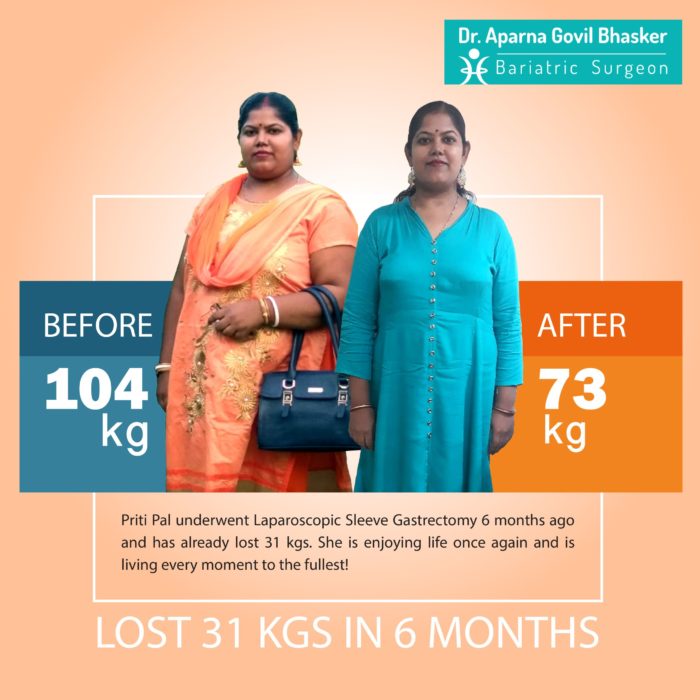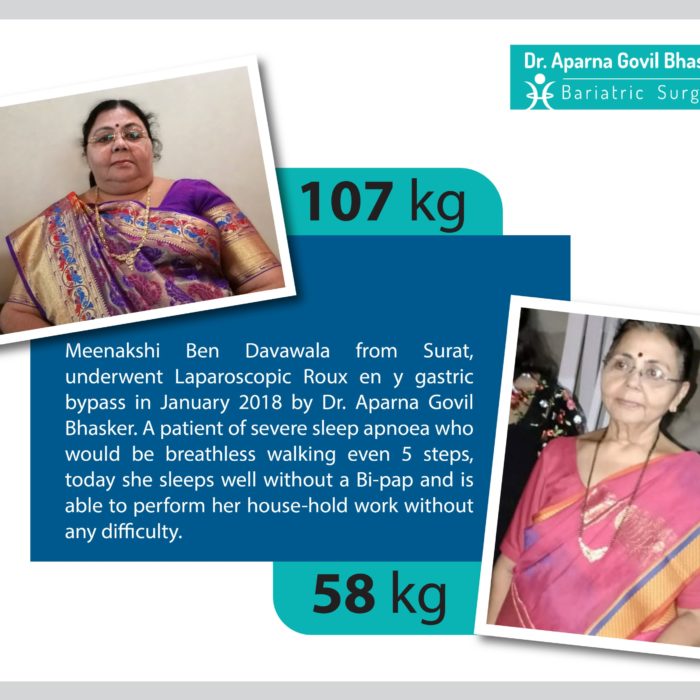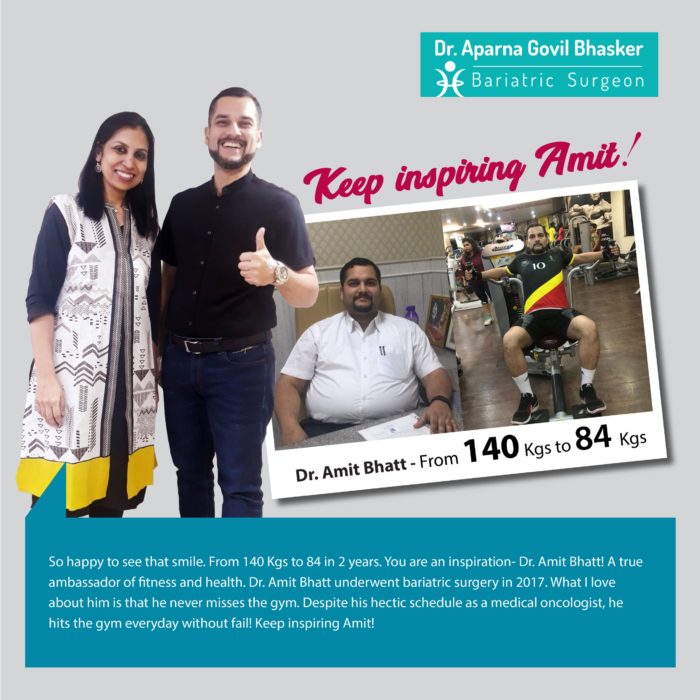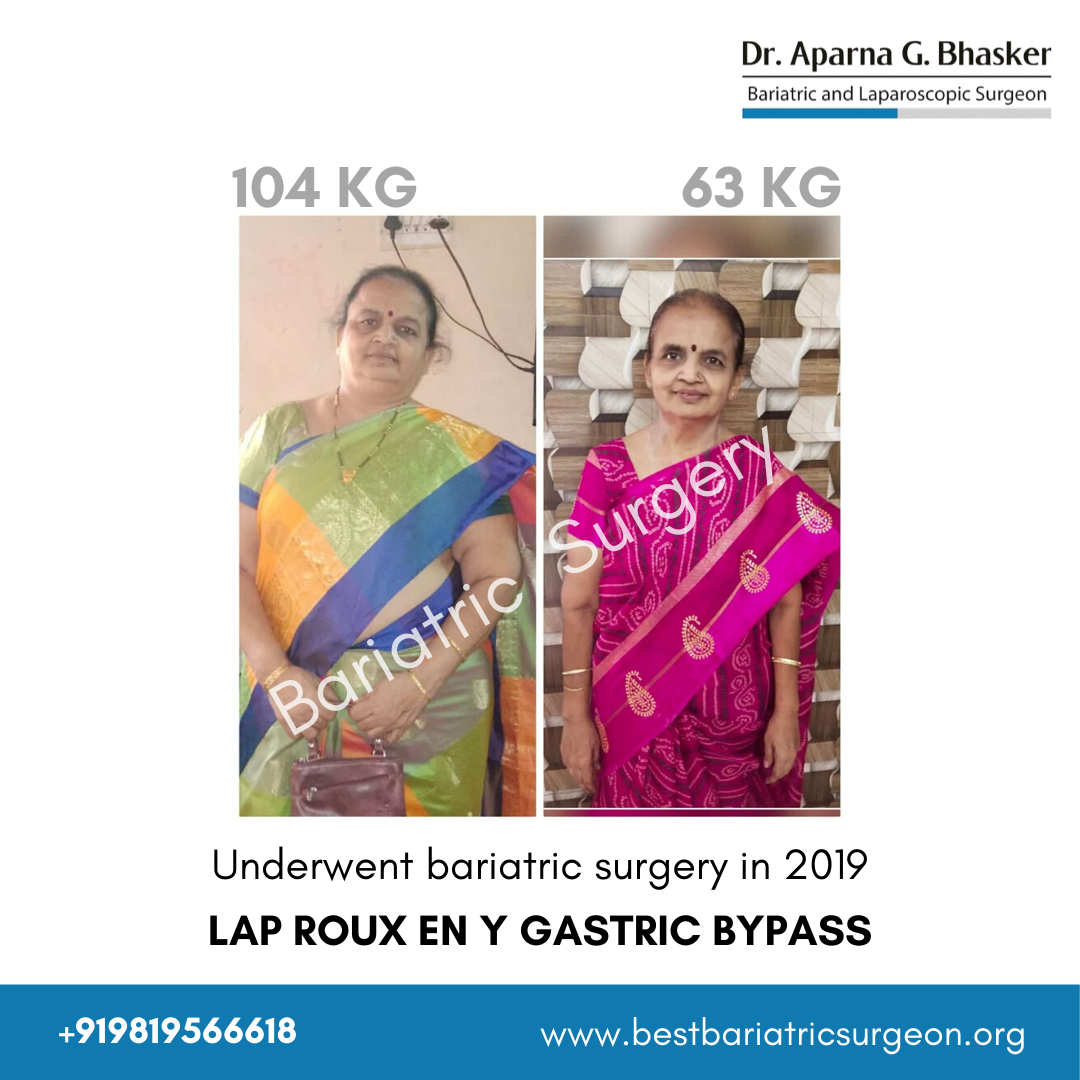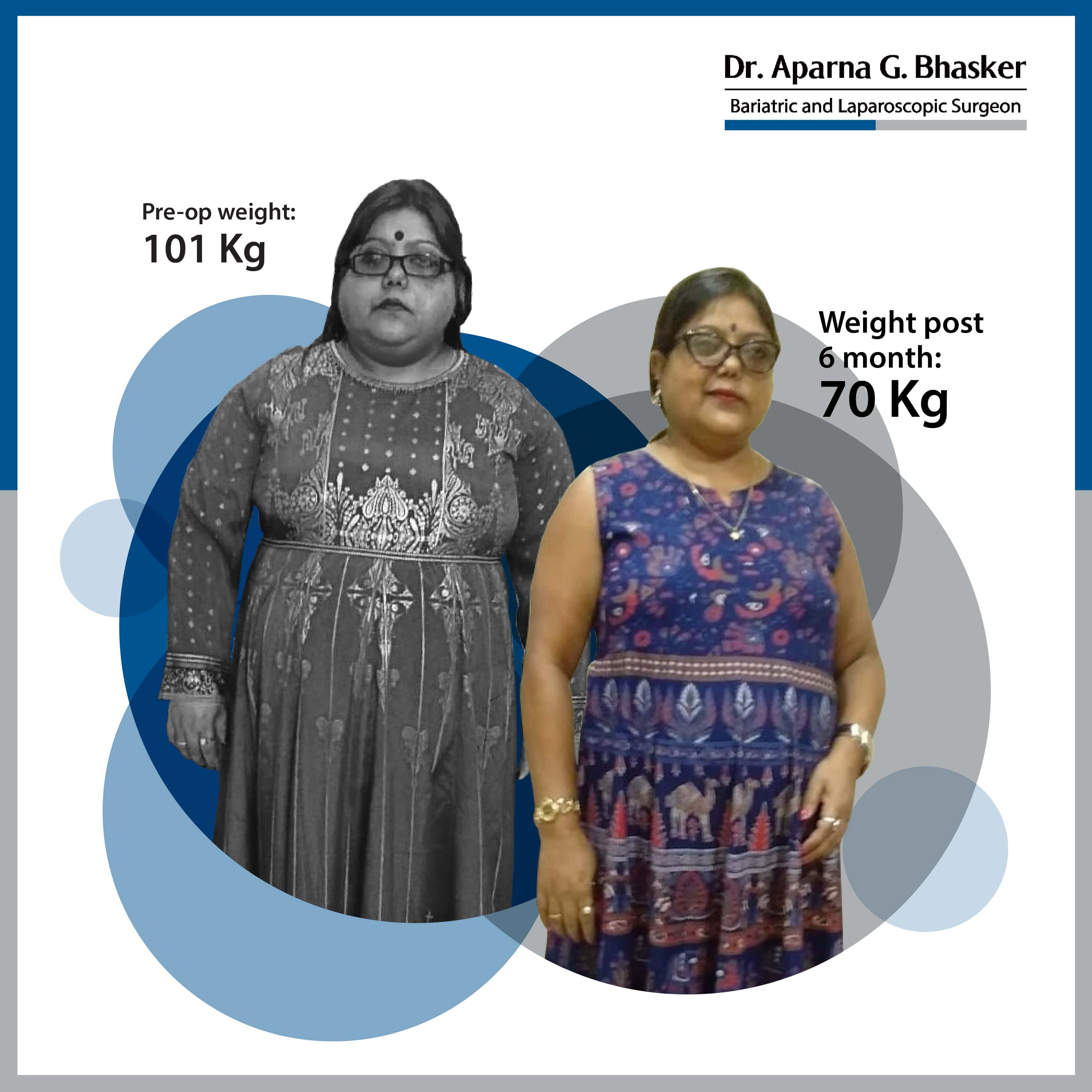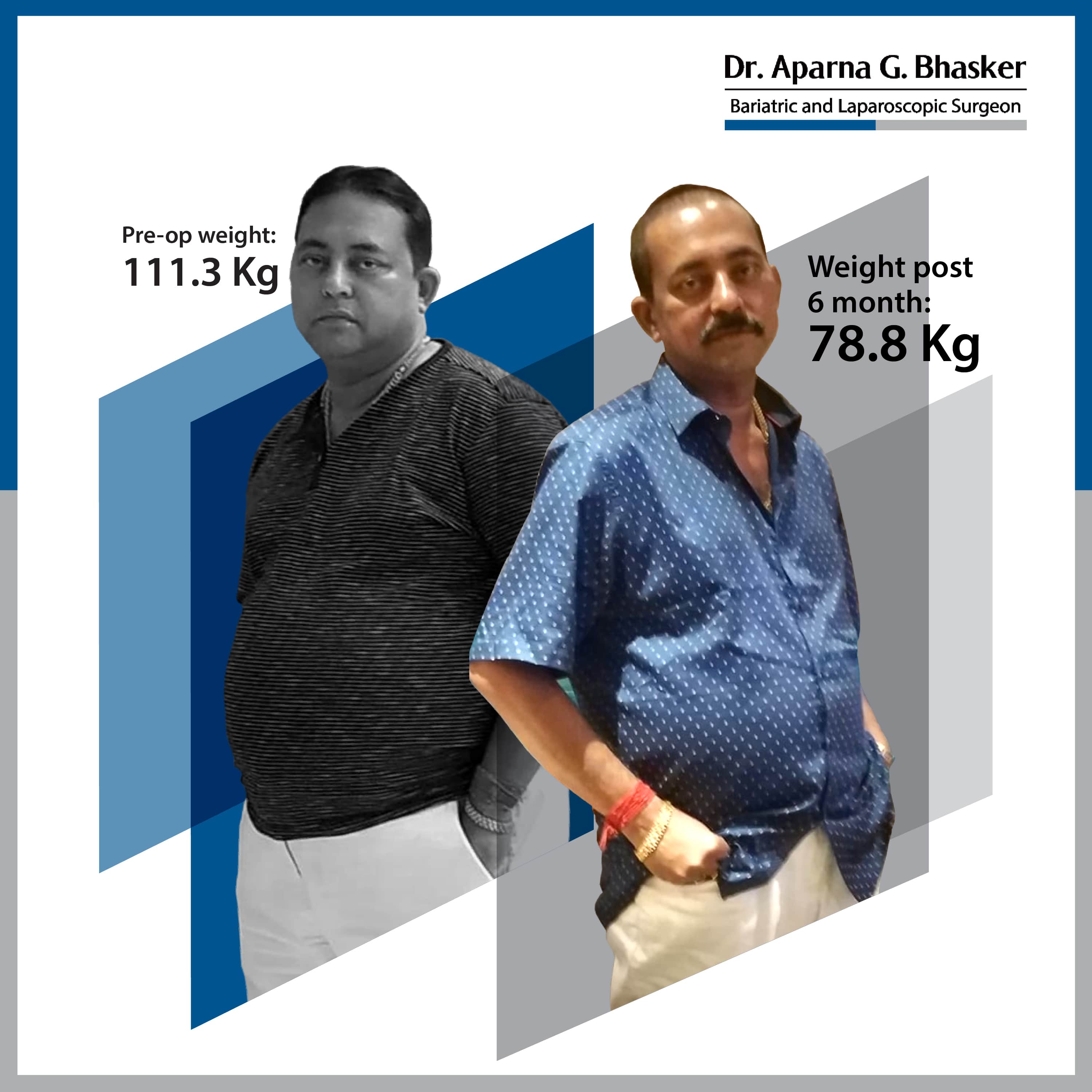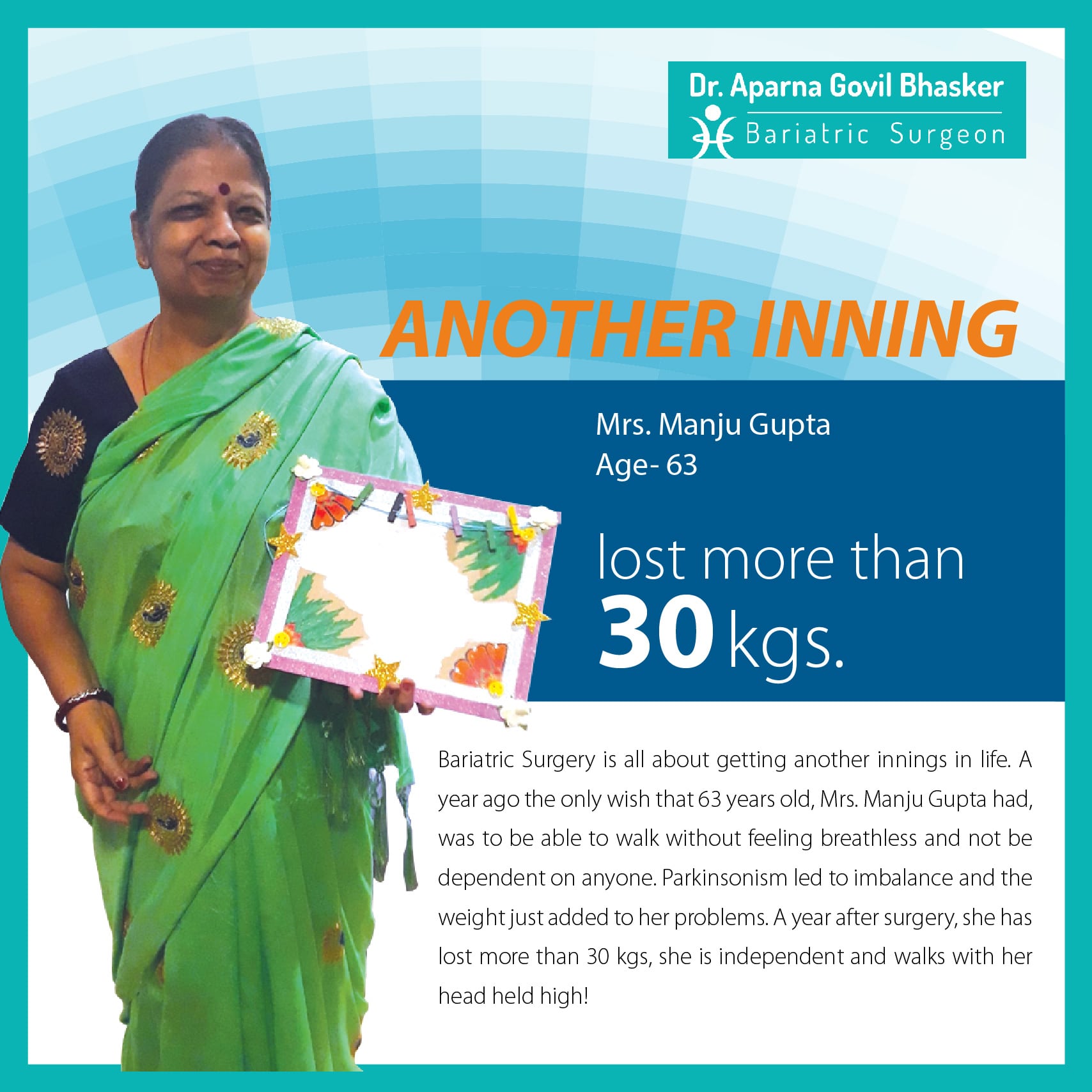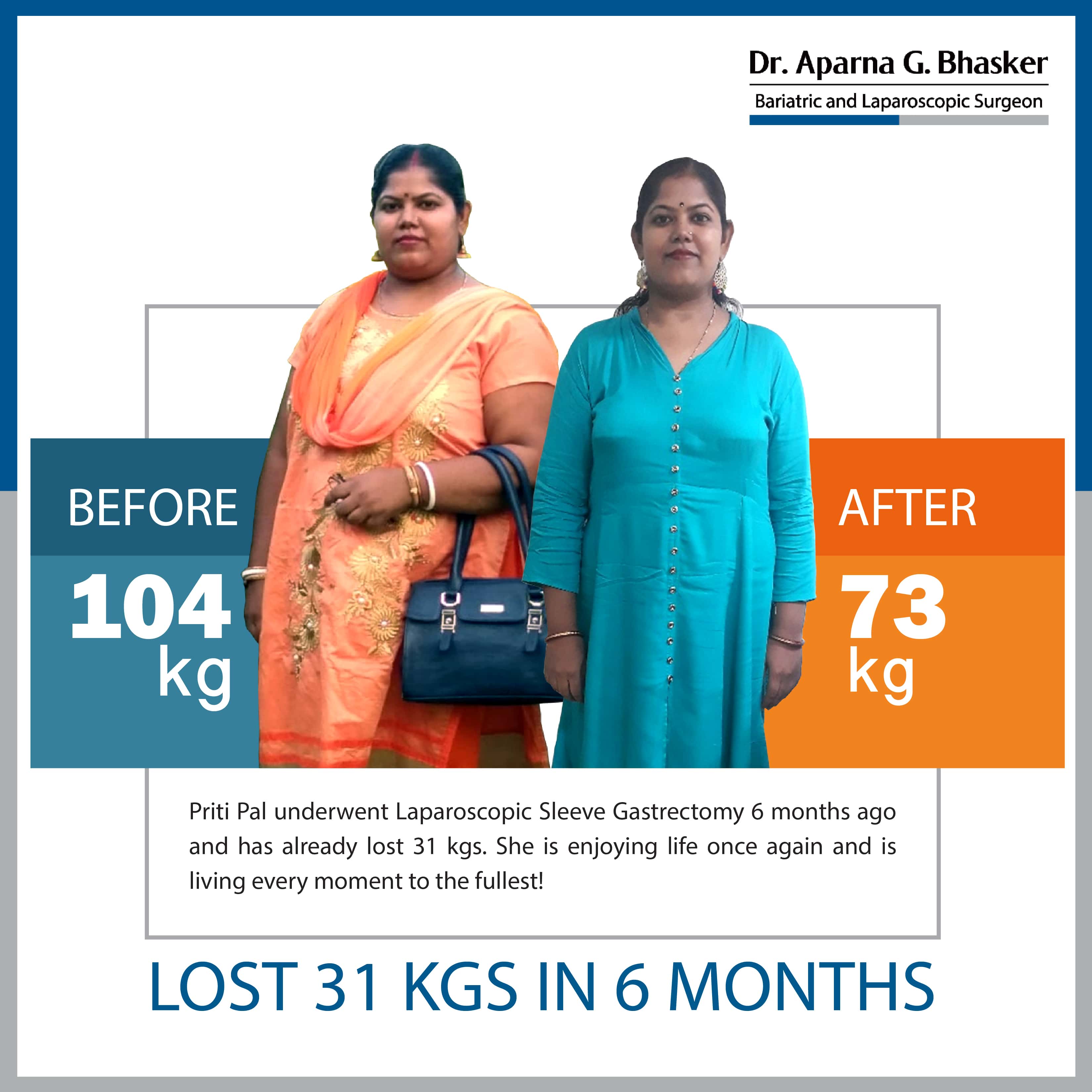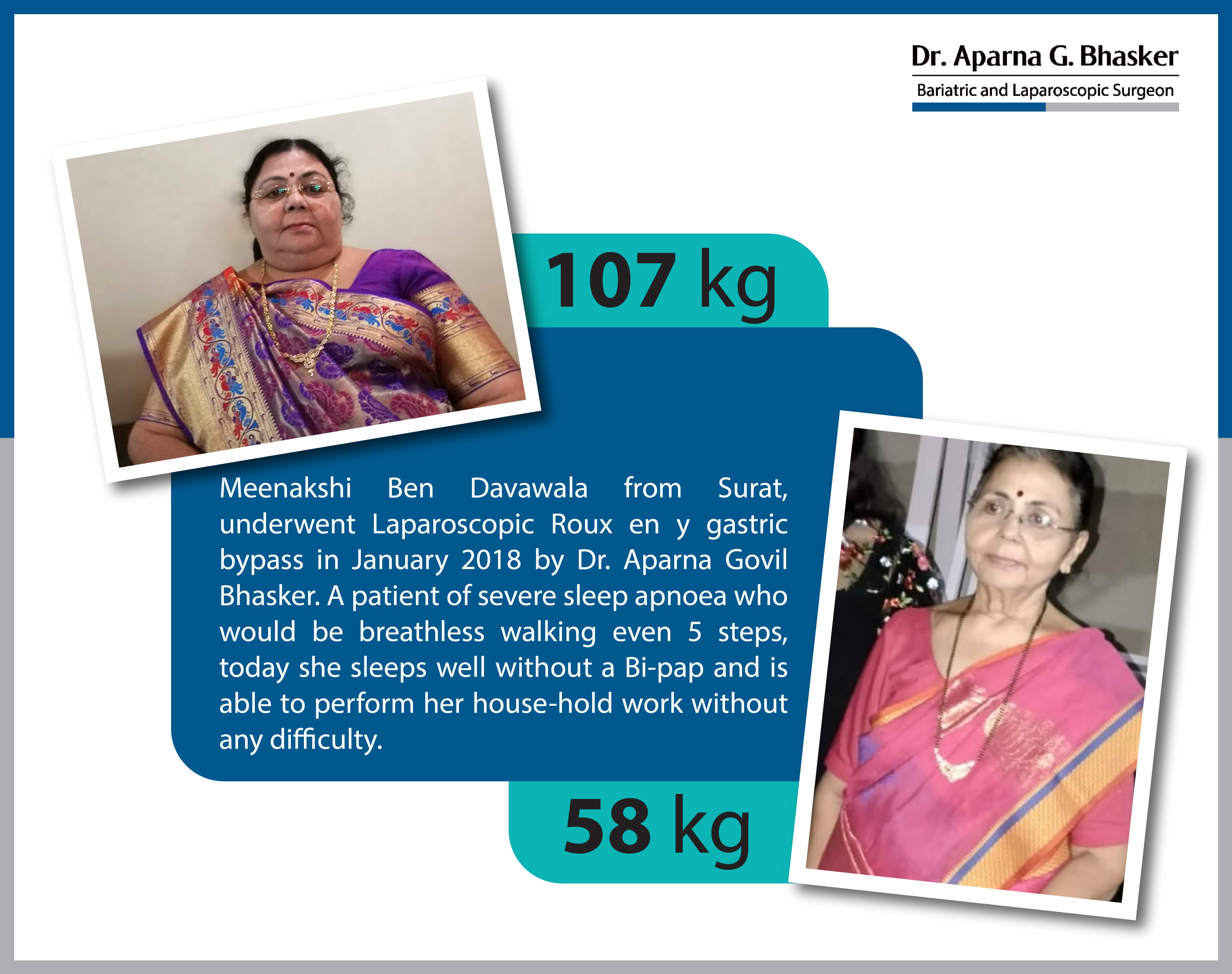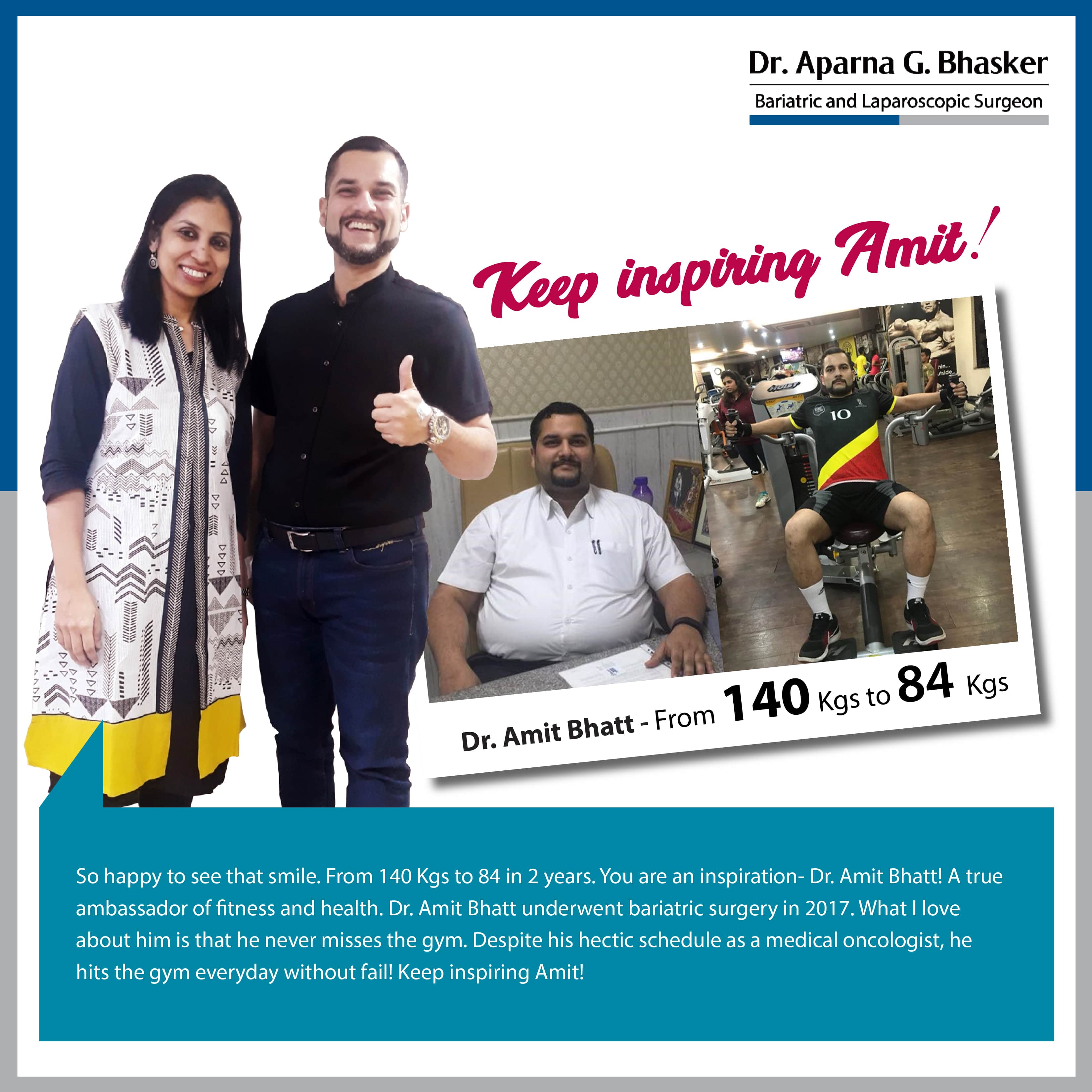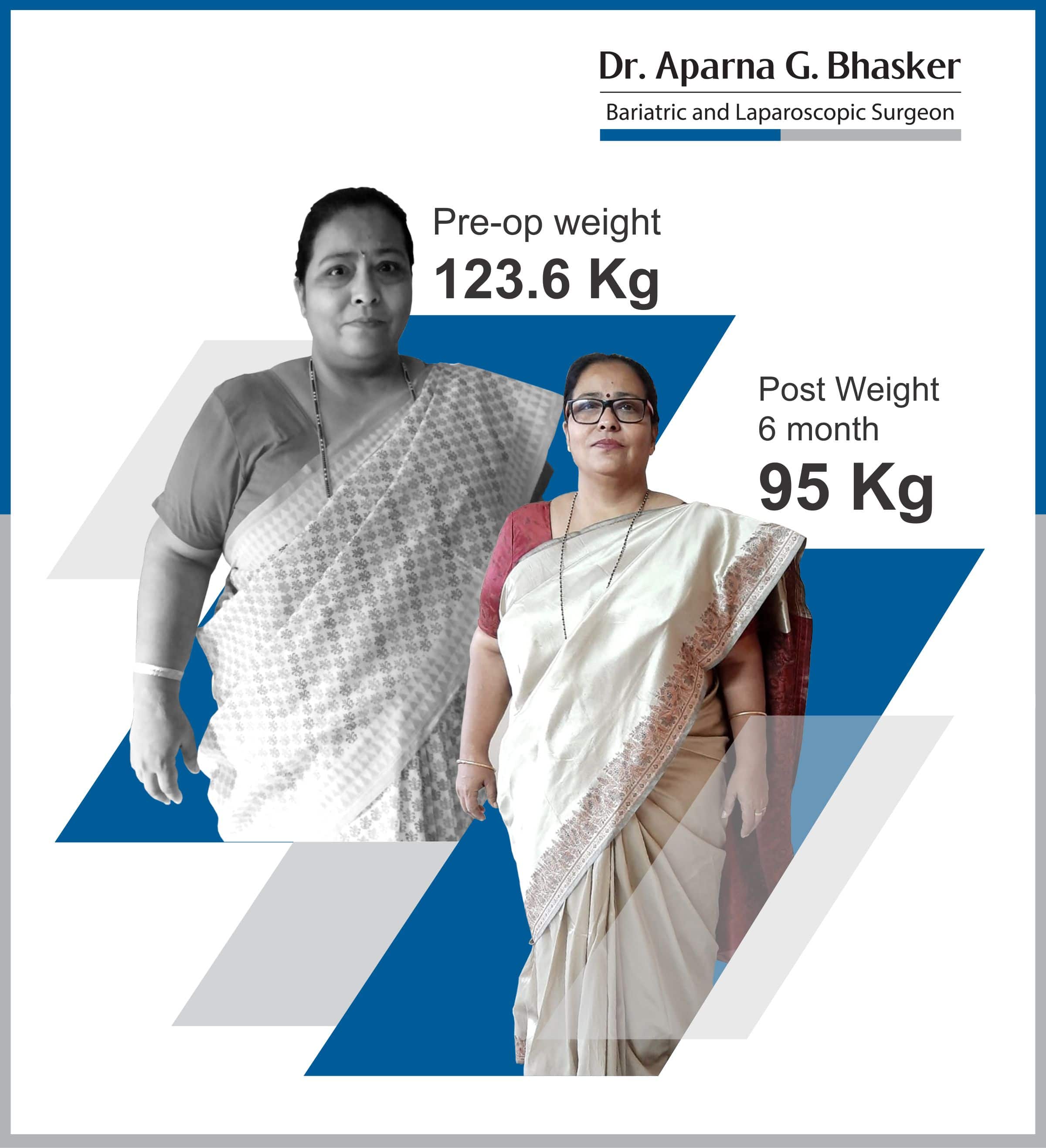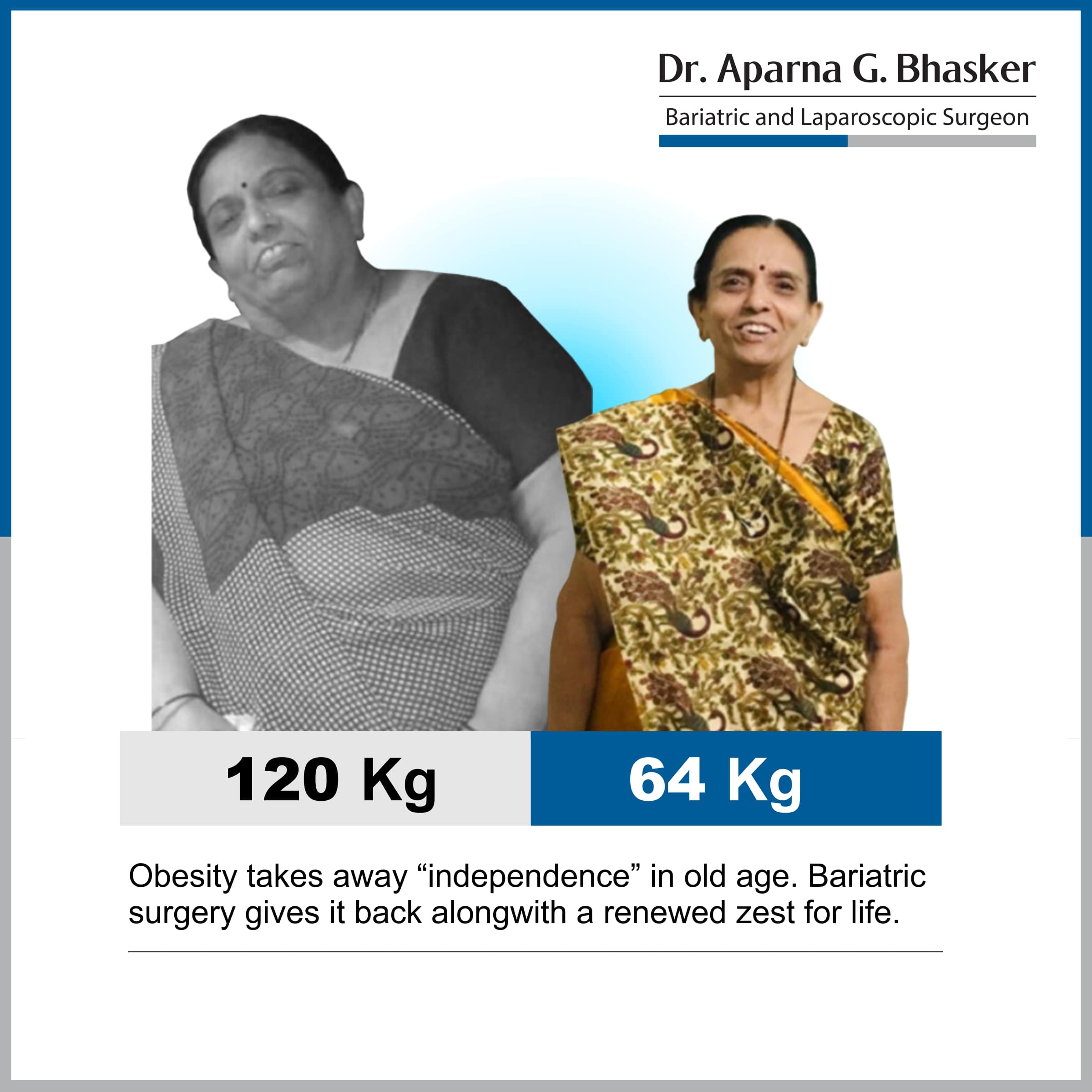Dr. Aparna Govil Bhasker
Bariatric & Laparoscopic Surgeon
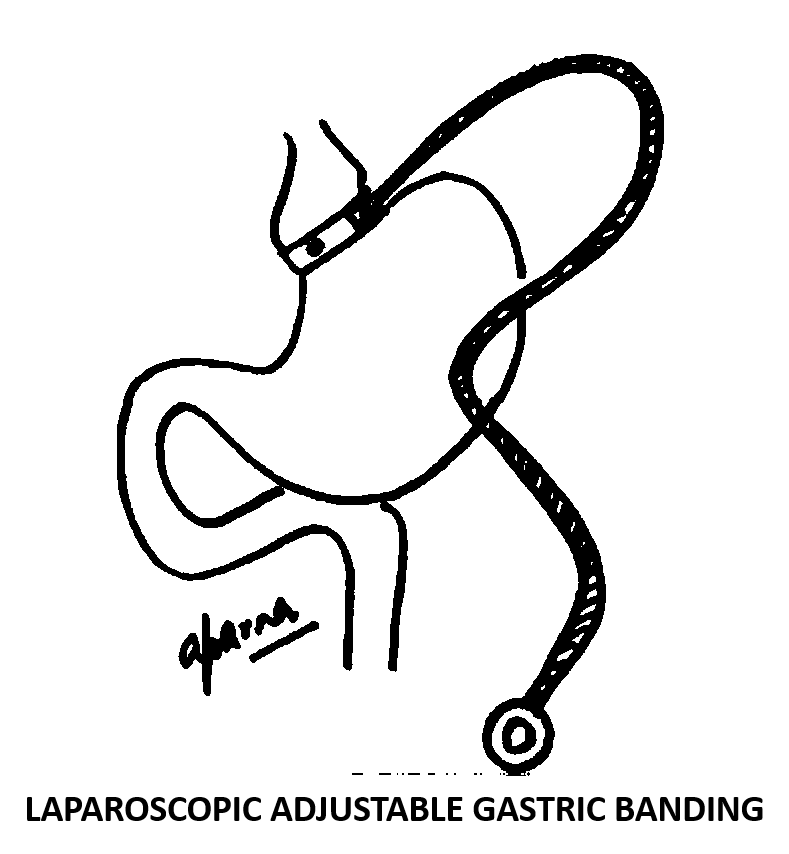
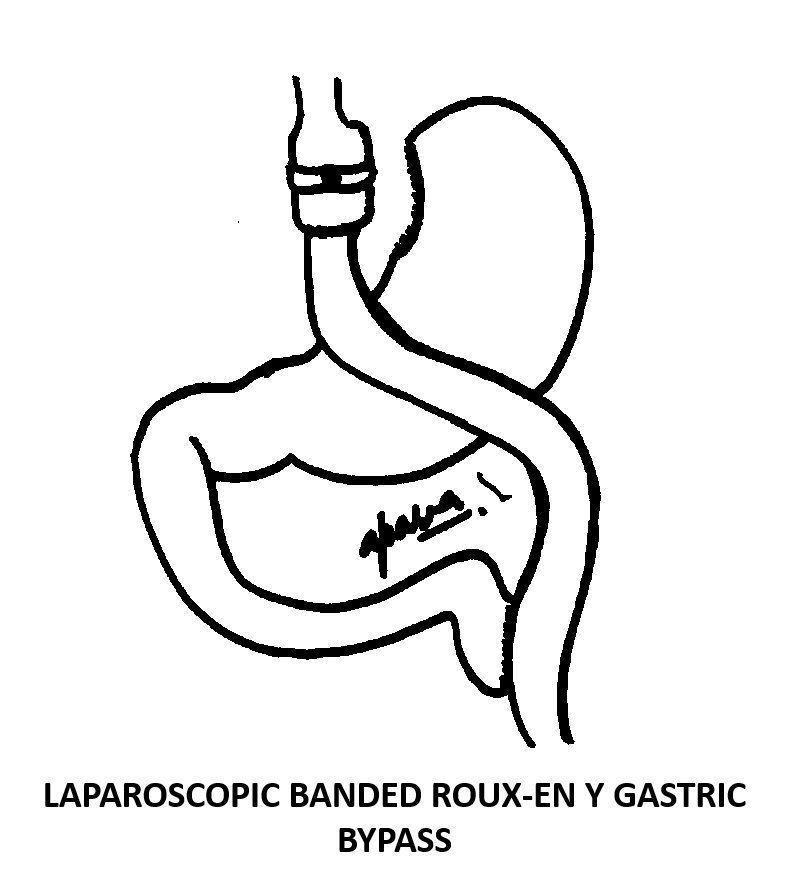
Banded procedures like the banded Roux-en y gastric bypass surgery in mumbai or banded sleeve gastrectomy consist of applying an inflexible band over the stomach pouch. This prevents the pouch from future dilatation and maintains restriction in the long term. Weight maintenance is better in the long term with banded procedures.
The flip side of banded procedures is that bands are foreign bodies and there is a chance of complications like band erosion into the stomach or band slippage. Band are inflexible and sometimes may also lead to difficulty in swallowing or vomiting. In case of complications such as band erosion, usually it is possible to remove the band endoscopically by an experienced bariatric surgeon or a gastro-enterologist. Bands also add to the cost of the surgery and make it more expensive.
In conclusion, overall long term weight maintenance with banded procedures is better but there is an additional cost as well as risk of complications associated with the band. In my practice I usually educate my patients about the pros and cons and then we together we take an informed decision.
Patient Stories
- Mansi considered bariatric/ weight loss surgery as she was suffering from grade III obesity with a Body Mass Index (BMI) of 47.5 Kg/m2. At 121.7 Kg she was not able to exercise much due to severe knee pain. She would feel breathless on exertion. Her sonography revealed grade II fatty liver. She underwent a Laparoscopic Sleeve Gastrectomy on 14th of November 2018. She knew that bariatric surgery was not a shortcut to weight loss, and worked very hard on changing her lifestyle post surgery. She exercises for 2-3 hours daily and follows a great diet regime. She has an amazing will power as she was able to accomplish her goal of climbing more than 3000 steps at Palitana just after 2 months post surgery. She lost 35.7 Kg in 6 months, we salute her grit and determination!
- Priti was 104 kg and suffered from high cholesterol, knee & back pain. She also had grade II fatty liver. She underwent a Bariatric/weight loss surgery in the form of Laparoscopic Sleeve Gastrectomy on 22nd of December 2018. In the last 7 months her weight has come down to 73 Kgs. Her cholesterol levels and knee pain are under control and fatty liver has resolved. She is extremely happy with the way she looks & feels now and loves getting all the "likes" and admiration on her pictures posted on social media. Her weight loss journey will continue and she will lose more weight in the coming months.
- When she came to us, she was suffering from diabetes mellitus, high blood pressure, severe sleep apnoea and gout. She had already undergone a total knee replacement and was advised to use Bi-pap on a regular basis. Losing weight had become crucial and critical. She underwent a Bariatric/Weight loss surgery in the form of Laparoscopic Roux En Y Gastric Bypass on 24th of January 2018 and lost 47 kgs in 1 Year. Her present weight is 60 Kg, she is off Bi-pap machine, diabetes free and came down to 2 medicines from 4 for control of high blood pressure. She feels much more independent, is able to do all her household chores and religiously goes for a brisk walk daily for an hour. She is the lifeline of her family and loves her new self.
- Dr. Bhatt is a practising medical oncologist in Pune. He struggled with obesity for many years. At 140 kgs, he decided to undergo a Laparoscopic Banded Roux en Y Gastric Bypass in Feb 2017. He has lost 55 kgs. Dr. Bhatt has adopted diet and lifestyle modification as a way of life and is seen in the gym every evening despite his busy schedule. He has become a fitness role model for everyone around him and that includes his patients. One of the most inspiring journeys.
About Dr. Aparna Govil Bhasker

Read more about Dr. Aparna Govil Bhasker- https://www.bestbariatricsurgeon.org/dr-aparna-govil-bhasker/
Please write in to info@bestbariatricsurgeon.org or draparnagovil@gmail.com & Call/Text/WhatsApp: +919819566618 or +919930922761
Dr. Aparna’s website is- https://www.bestbariatricsurgeon.org
You can read her lovely blogs on- http://www.aparnagovilbhasker.com
Dr. Aparna Govil Bhasker is a visiting consultant at the following hospitals:
- Gleneagles Global Hospital, Parel, Mumbai
- Hinduja Healthcare Surgical, Khar West, Mumbai
- Apollo Hospital, CBD Belapur, Navi Mumbai
- Suchak Hospital, Malad, Mumbai
- Namaha Hospital Kandivali, Mumbai
- Currae Specialty Hospital, Thane
- MGM Hospital, Vashi, Navi Mumbai
- Apollo Spectra Hospital, Tardeo and Chembur, Mumbai
- Saifee Hospital, Mumbai

